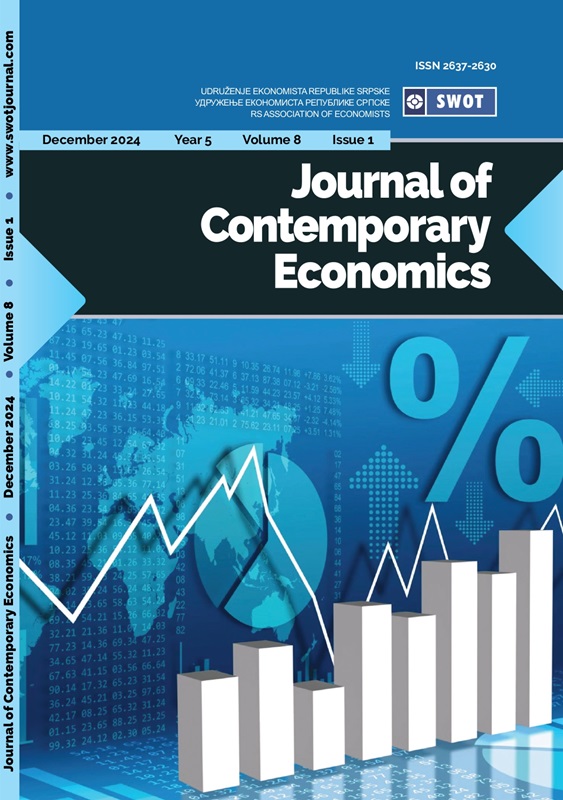The Impact of Macroeconomic and Environmental Factors on Household Debts in G7 Countries
DOI:
https://doi.org/10.7251/JOCE2408033OAbstract
This article aims to study the influence of macroeconomic and ecological
factors on household debts. The quantitative method of OLS multiple
Regression is applied to the data used for this research from the period
2003 to 2021. To establish the macroeconomic factor, the metrics are
the real house price index with the base year 2015, unemployment as %
of the labour force, and short-term interest rate per annum. Research
shows that house price and unemployment have a noteworthy relationship
with the dependent variable, while trade in goods significantly adversely
affects household debt. In respect to the climate change factors, results
reveal that annual surface temperature and annual emissions of CO2
have a favourable and notable impact on household debt. The only insignificant
effect on household debts had been shown by the short interest
rate. The beneficiaries of this research can include policymakers, economists,
and financial institutions who are interested in understanding the factors
that affect household debts. The significant relationship between household
debt and factors such as house prices, unemployment, export trade,
climate change factors, etc. reflect underlying economic disparities in
these countries. The results of this research could benefit policymakers
and economist in farther understanding the environmental factors that
influence household debts.

